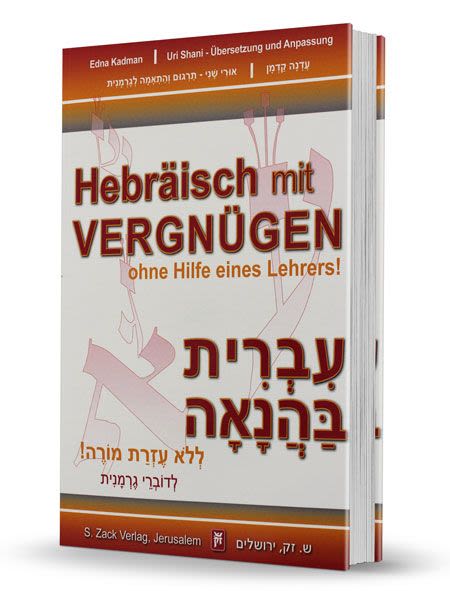
Why the Window?
Why does a Baal Teshuva need the special window in the letter “heh” ? Why doesn't he simply climb back in through the bottom hole through which he fell?

 The Midrash relates an interesting account between Adam HaRishon and his son, Kayin, not too long after Kayin had committed the unthinkable: the killing of his brother, Hevel.
The Midrash relates an interesting account between Adam HaRishon and his son, Kayin, not too long after Kayin had committed the unthinkable: the killing of his brother, Hevel.
“What was the judgment pronounced upon you?” Adam asked.
“I did teshuvah, and the full impact of justice was not applied to me,” answered Kayin.
“This is the power of teshuvah?!” Adam exclaimed. “I did not realize that by doing teshuvah a person’s past misdeeds are erased so completely and considered by Hashem as if they had never taken place!” (Bereishit Rabbah 22:28)
After that, says the Talmud, Adam and Chava spent the next 130 years fasting and doing teshuvah for their own chet (Eiruvin 18b), and although they could not reverse the eating of the Tree of Knowledge of Good and Evil, they did become completely righteous. As a reward, the tzaddik Shais was born to them.
The question is, how could Adam not known about the full impact of teshuvah, and Kayin, a murderer, could? After all, the Talmud teaches us that the world was made with the letter “heh” in order to make possible the concept of teshuvah (Menachos 29b). The form of the letter “heh” includes an open “bottom,” and a “window” to the top left. This alludes to the fact that a person can “fall,” and yet do teshuvah by spiritually climbing back in through the window at the top left.
But why the window? Why doesn’t the repentant sinner simply climb back in through the bottom hole through which he fell?
Because, a chet changes a person, after which he is never the same again. As the Rambam teaches in Hilchos Teshuvah, the process of teshuvah often includes going to an opposite extreme, before returning back to the middle path once again. Perhaps the little “window” at the top of the “heh” represents that opposite extreme.
Therefore, if the world was made with the letter “heh,” and that was in order to make possible the concept of teshuvah and its effects, why didn’t Adam realize this from the beginning? Think of the difference it would have made to history! In fact, instead of blaming his wife for eating against G-d’s will, Adam would have instead admitted his mistake, done viduy, and perhaps, all of us would be sitting in Gan Aiden this very day. In fact, perhaps Adam’s test wasn’t so much whether he would eat from the tree or not, as the Midrash seems to indicate (Tanchuma, Vayaishev 4), but rather, how he would respond to his chet, by doing teshuvah or by passing the blame onto another!
The answer lies in something we take for granted: teshuvah is not natural. Though the Talmud doesn’t say this, it is found in many seforim, such as the Pachad Yitzchak by Rav Yitzchak Hutner, zt”l. In an essay on teshuvah in his section on Rosh Hashanah, there Rav Hutner describes the elaborate process that occurs when one does teshuvah, after which one realizes that teshuvah is far more than saying “I’m sorry” and promising to do better next time.
In fact, the letter “heh” that the Talmud in Menachos refers to actually corresponds to the level referred to as “Binah.” Binah means “understanding,” but, esoterically-speaking, it refers to a supernatural level of existence, one from which this world was made, but necessarily one that governs our everyday world.
Let me give you an example. When a woman has a child, that child is said to come from the mother. However, as much as the child is related to the mother, to the point that, genetically-speaking, there are obvious similarities (even some traits seem hereditary), still, the child is an independent reality. And, though, in the beginning, the mother make decisions for the child, and act as if the child is a mere extension of herself, that is only temporary. Eventually, the mother can, at best, be an influence in her adult child’s life.
So, too, is it with our world: higher levels give rise to lower levels in creation. However, though this world was made from the letter “heh,” it is not the level of “heh” itself, which is why Adam HaRishon assumed it was not attainable. And logically, he was right; had it not been for his son, who, looking to spare his life, literally stumbled onto the concept of teshuvah, Adam would have not known just how far G-d’s mercy can go.
This problem, it seems, is not isolated to Adam HaRishon. The Talmud says elsewhere:
Rebbi Yehoshua ben Levi said: The chet of the golden calf was only committed to give a chance to the Ba’alei Teshuvah … Neither Dovid was fitting to do the thing (regarding Bat Sheva), nor was Israel fitting to do the thing (the golden calf). Why did they occur? To tell you that, if an individual sins, it can be said to him, “Do as the individual (Dovid)!” If a community sins, it can be said them, “Do as the congregation!” (Avodah Zarah 4b)
Why? Why did these episodes have to occur to teach us about teshuvah? Answers Rashi, “It is a decree from the King that an opening for returnees should exist!” In other words, teshuvah is not a logical possibility, nor is it a civil right, or even the reward for accepting Torah at Sinai. It is a gift, strictly a gift, min HaShamayim!
The gift, however, does not end here. The Pri Tzaddik says something very remarkable that requires a lot of thought, though it is based upon the Gemara. In Parashas VaEschanan, according to Rav Tzadok HaKohen, Moshe Rabbeinu, as part of his farewell address to Klal Yisroel, told them, “You can accomplish something I could not accomplish in my lifetime, because you …”
… Yisroel, by way of teshuvah, which is the Fiftieth Gate [of Understanding] can cause the rectification (that I could not with all my pleading), because, “the completely righteous can’t reach the level of the Ba’alei Teshuvah” (Brochos 34b). (Pri Tzaddik, VaEschanan 3)
To better understand the gift before us, we can quote the Ramchal:
… Such suffering, however, is not the same as that discussed earlier, which was an atonement for sin. What we are speaking of now are sufferings meant to motivate a person and awaken his heart to do teshuvah. Punishment was only created to exist in the absence of teshuvah. What Hashem truly desires is that man not commit chet, but that if he does, that he should do teshuvah. If one does not do teshuvah, however, he can still be purified through these sufferings … (Derech Hashem, 2:3:5)
Hence, suffering of this type is a wake-up call from Above. Teshuvah, therefore, is a wake-up call from Below, or better yet, from within-from within the heart of every Jew, as the Torah says:
“If only their hearts would always remain this way, where they are in such awe of Me. They would then keep all My commandments for all time, so that it would go well with them and their children forever.” (Devarim 5:26)
It is a heart-issue, the Torah is telling us, and “things that go out from the heart go into the heart.” Giving the Jewish people the concept of teshuvah and the chance to perform it was a Divine gift and sublime act of love by the Creator towards His beloved people. That ought to enter the heart of every acknowledging Jew. And, when it does, it will be impossible for that Jew not to do teshuvah as a sublime act of love for his or her Creator. Ani l’dodi v’dodi li.
May we merit to receive the gift of teshuvah and to realize its power to transform demerit into merit, to change hester panim into Divine revelation, and, as a result, live to witness the Final Redemption of Klal Yisroel and an end to all our sorrows.
L’Shannah Tovah
May this year be filled with much blessing,
And only good news,
For all of the Jewish People.
Nizke Lirot Geulah Shlaimah!
***
Pinchas Winston is the author of over 95 books on various topics that deal with current issues from a traditional Jewish perspective. He has also written on the weekly Torah reading since 1993, called “Perceptions”, as well as on current topics and trends affecting Jewish history, past and present. One of his missions is to make the depth and beauty of the more mystical teachings of Torah understandable and accessible to those who can really benefit from them. Visit his website at thirtysix.org.











Tell us what you think!
Thank you for your comment!
It will be published after approval by the Editor.